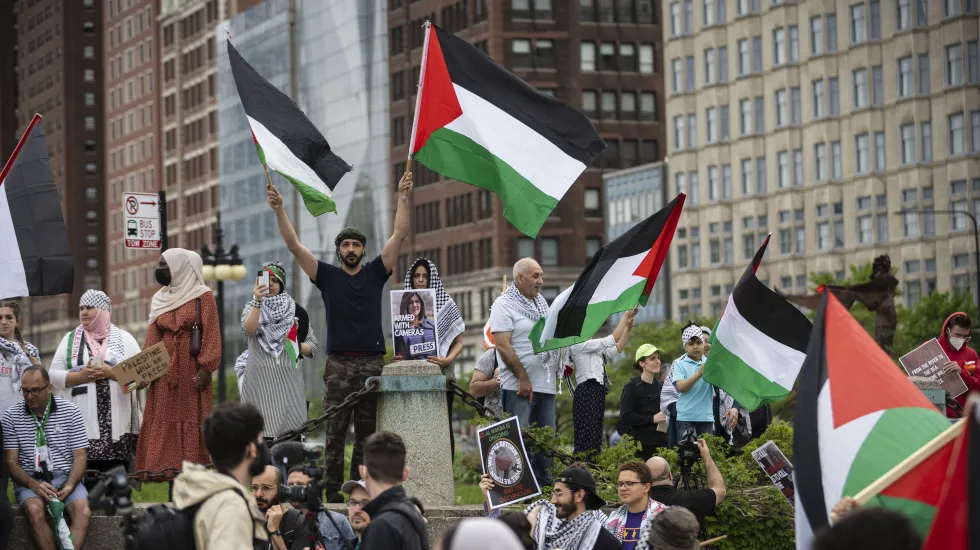
Hundreds of demonstrators took to the streets of downtown Chicago to protest the May 11 killing of Palestinian-American journalist Shireen Abu Akleh.
Abu Akleh was a longtime TV correspondent for Al Jazeera Arabic, and many of the attendees hailed her as their “eyes and ears” in Palestine as they lived thousands of miles away. Palestinian officials and witnesses, including journalists who were with her, say she was killed by Israeli army fire. The military, after initially saying Palestinian gunmen might have been responsible, later backtracked and now says she may also have been hit by errant Israeli fire.
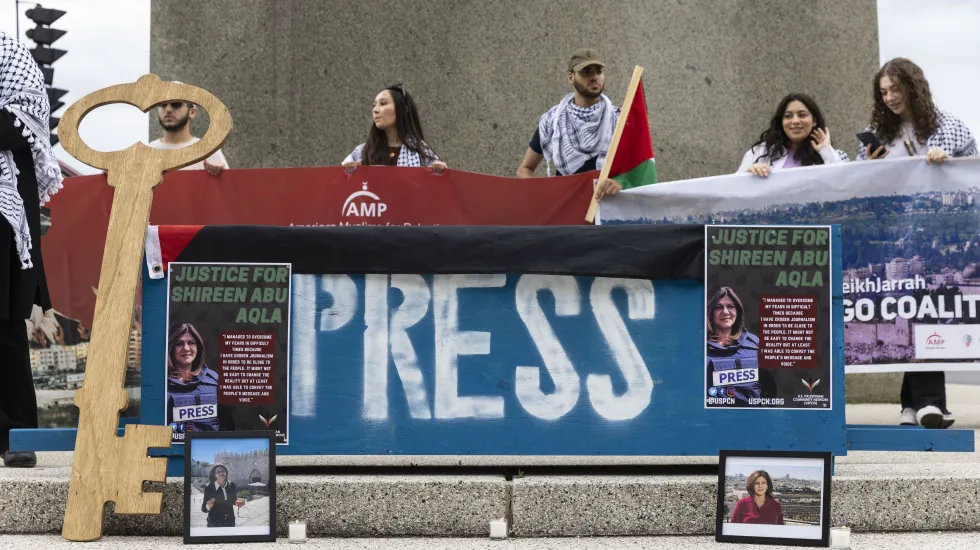
Israel has called for a joint investigation with the Palestinians, saying the bullet must be analyzed by ballistics experts to reach firm conclusions. Palestinian officials have refused, saying they don’t trust Israel, and have invited other countries to join the investigation. Human rights groups say Israel has a poor record of investigating wrongdoing by its security forces.
Over the weekend, Bellingcat, a Dutch-based international consortium of researchers, published an analysis of video and audio evidence gathered on social media. The material came from both Palestinian and Israeli military sources, and the analysis looked at such factors as time stamps, the locations of the videos, shadows and a forensic audio analysis of gunshots.
The group found that while gunmen and Israeli soldiers were both in the area, the evidence supported witness accounts that Israeli fire killed Abu Akleh.
Souzan Naser, a member of the U.S. Palestinian Community Network, said the group is calling on the U.S. government to hold Israel accountable for Abu Akleh’s death.
“She gave her life to Palestine, she was an inspiration. I have two daughters, she was an inspiration to my young daughters,” Naser said. “We’re here to grieve collectively; we’re here to resist in the streets of Chicago and to say enough.”
During the rally, Palestinian flags waved above the crowd of hundreds, with chants of “free Palestine” ringing through the Loop as speakers stood behind a blue barricade that read “PRESS.”
Ranya Ali, who has family members in Palestine, brought her son and nieces to the demonstration.
She said she hopes to show them that they “will never forget; we will return to our home.”
“They will never forget Palestine,” Ali said.
The demonstration took place on the 74th anniversary of the Nakba, Arabic for “catastrophe,” in which hundreds of thousands of Palestinians fled or were forced from their homes during the war surrounding Israel’s establishment.
The fate of the refugees is one of the key areas of dispute between Israel and the Palestinians. Israel rejects demands for a mass return of refugees to long-lost homes, saying it would threaten the country’s Jewish character.
Sawsan Jaber, an educator, activist and granddaughter of a Nakba survivor, said she hopes to gain more widespread support for Palestine — especially from people of different religious and ethnic backgrounds.
“It would be wonderful to see more people here that don’t look like me,” Jaber said.
Standing in the center of Chicago, she wanted to make it clear to the hundreds of passing cars that they’re not going anywhere.
“A lot of people hope that we would go back to our countries,” Jaber said. “This is our country.”
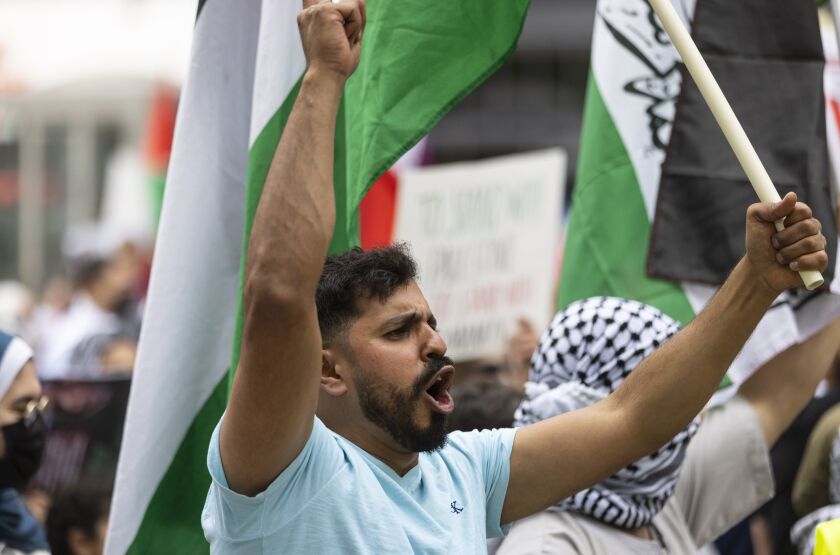
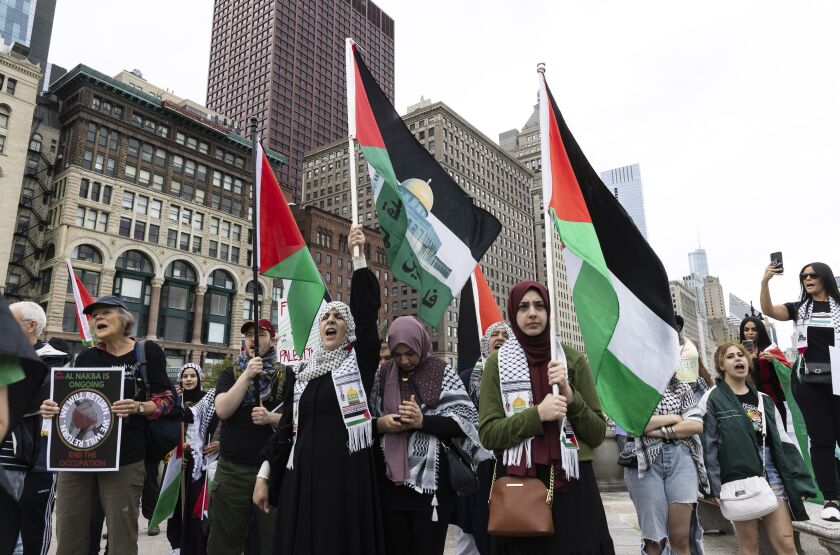
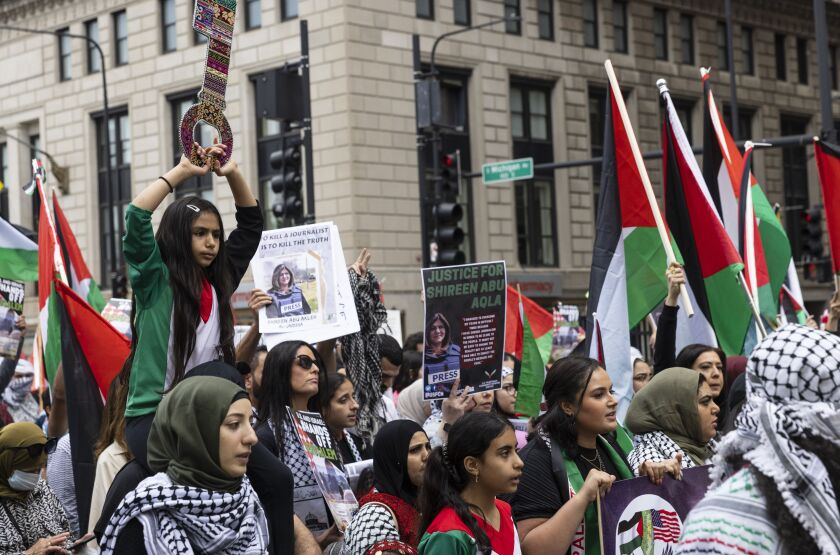
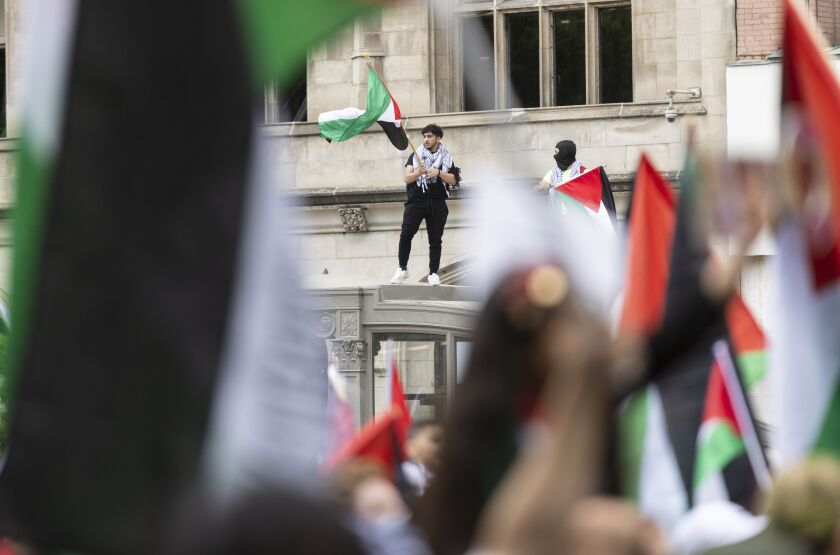
Contributing: AP







